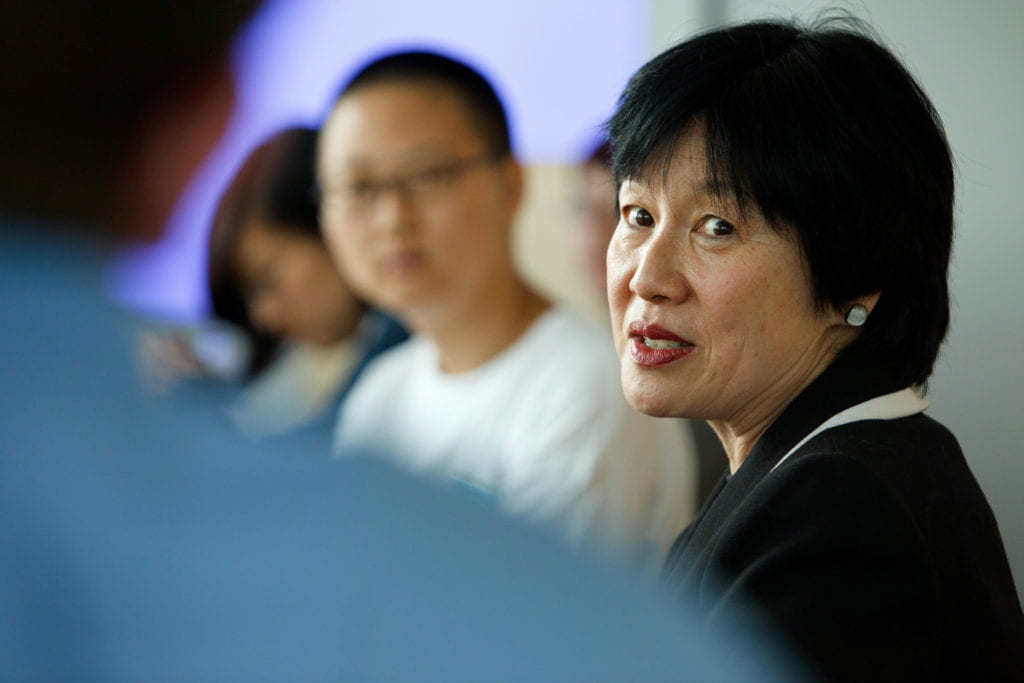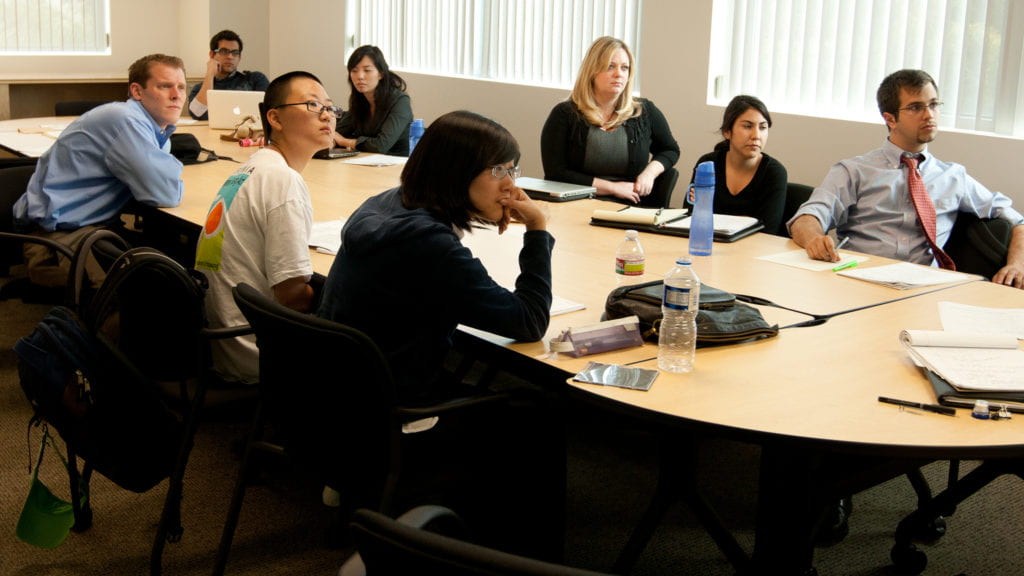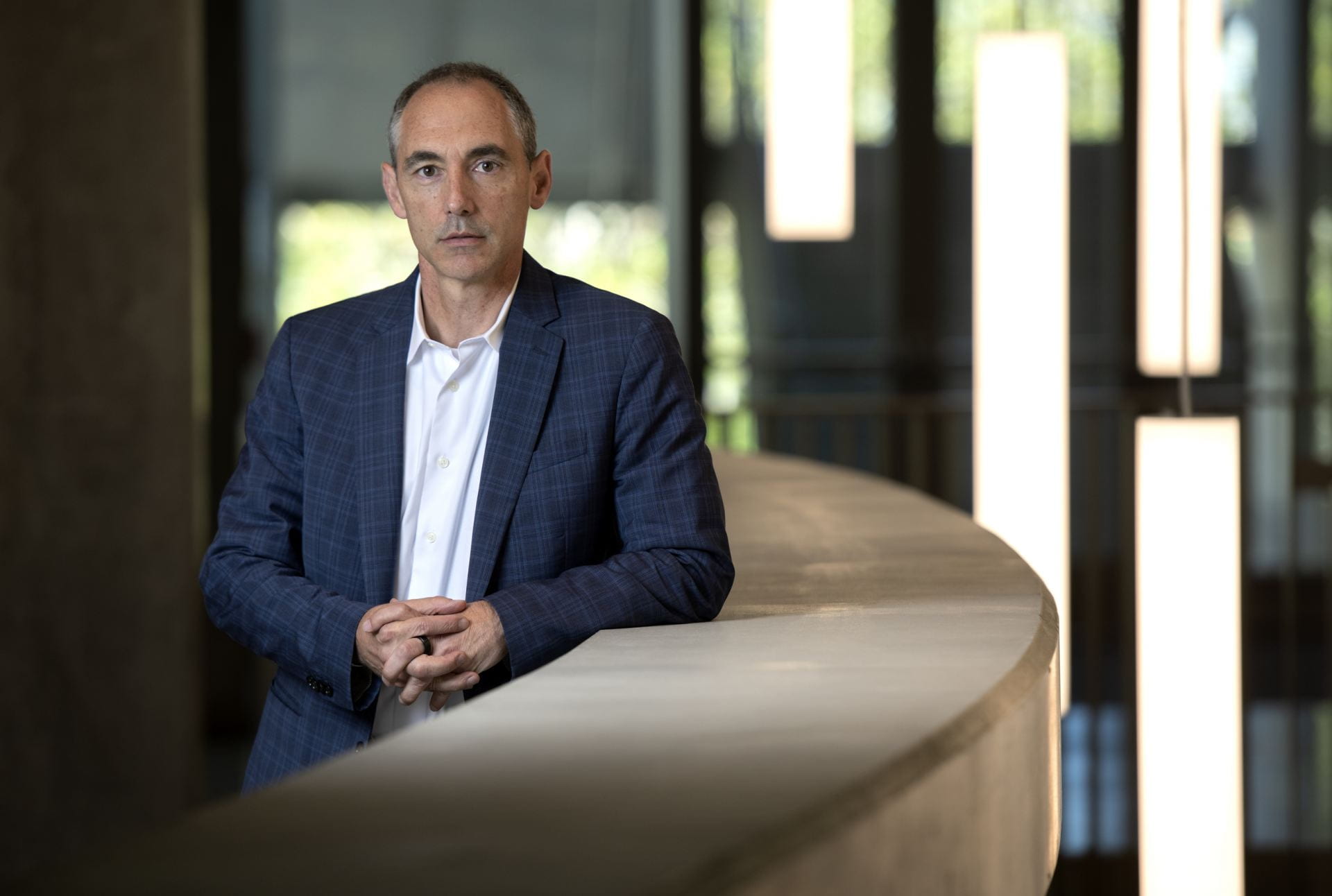UCI law students snapped up for summer jobs
Some are working in a clinic to investigate violations of Verizon workers’ rights in a class-action lawsuit.
Eight first-year law students gathered for the first time May 16 in an isolated third-floor office at the UC Irvine School of Law to participate in the birth of an innovative civil rights clinic, a partnership between the law school and the state to help investigate and prosecute violations of workers’ rights.
The clinic was started by the California Department of Fair Employment & Housing and the law school to process nearly 1,000 claims in a class action brought by the agency on behalf of Verizon employees who say they were illegally denied medical or family leave provided under the California Family Rights Act.
“The case has been settled for about $6 million,” says law student Michael Deshong, “and our work will involve contacting plaintiffs for interviews and reviewing their employment files to evaluate their claims for the purposes of allocating the settlement funds.”
The valuable, hands-on experience gained by the law students working with the clinic is typical of what’s in store for virtually the entire UCI law school student body this summer.
As of early June, all of the 59 second-year students and all but one of the 83 first-year students had found law-related employment for the season.
Last year, the inaugural class of students at the law school, which opened in August 2009, also batted 1.000 in securing summer jobs.
“The very strong showing in employment despite the weak economy proves that UCI law students are in high demand,” says Elizabeth Schroeder, assistant dean of student services. “Employers who hired our students last summer were very enthusiastic about hiring from our school again, and we have a large number of new employers this year.”
It’s the quality – not just the quantity – of these summer jobs that’s especially impressive. In addition to the DFEH, students will be working with such government agencies as the Orange County District Attorney’s Office, the U.S. Attorney’s Office in Los Angeles, the U.S. Navy Judge Advocate General’s Corps in San Diego, the U.S. Small Business Administration in Santa Ana, and the Federal Communications Commission in Washington, D.C.
They’ll also be working with public interest groups such as the American Civil Liberties Union of Southern California, the Lawyers’ Committee for Civil Rights Under Law in San Francisco, and the Brennan Center for Justice in New York, as well as such law firms as Gibson, Dunn & Crutcher; O’Melveny & Myers; and Jones Day.
Plus, two dozen students are interning this summer for federal and state judges, including three who sit on the prestigious 9th U.S. Circuit Court of Appeals, the federal appellate court for nine western states.
“Throughout the year, we read 9th Circuit decisions in our casebooks, discussed 9th Circuit opinions in class, and debated earnestly outside class about issues decided by the 9th Circuit,” says first-year law student Jennifer Chin.
“This summer, I’ll get to work directly with Judge Richard Clifton, writing bench memos and working on draft memorandum dispositions, but I’m most excited about the opportunity to get a peek at the inner workings of one of the most progressive and influential circuit courts in the country.”
These summer positions not only provide students with important, real-life experience but provide employers with skilled attorneys already well versed in relevant legal issues.
“I’m delighted to help educate the next generation of lawyers to enforce our state’s civil rights laws,” says DFEH director Phyllis Cheng, who had the idea to start the clinic. “The department envisions a long and fruitful partnership with UCI to develop future civil rights leaders who will combat systemic discrimination.”
Although UCI’s law school is new, its emphasis from the start on hands-on learning has, arguably, helped prepare its first two classes of students for law practice at least as well as many institutions that have been around a lot longer.
“The UCI School of Law is led by one of the most visionary deans in American legal education,” says Cheng. “Erwin Chemerinsky has established a highly innovative program with multitalented law students of diverse backgrounds who are motivated to make a difference in our world.”
Such enthusiasm has been a tremendous asset to the law school’s Career Development Office in securing summer employment for class members.
“Our dedicated network of donors and supporters in the California legal community has proven to be just as useful – if not more so – as a typical law school’s alumni network in helping our students find jobs,” Chemerinsky says.





